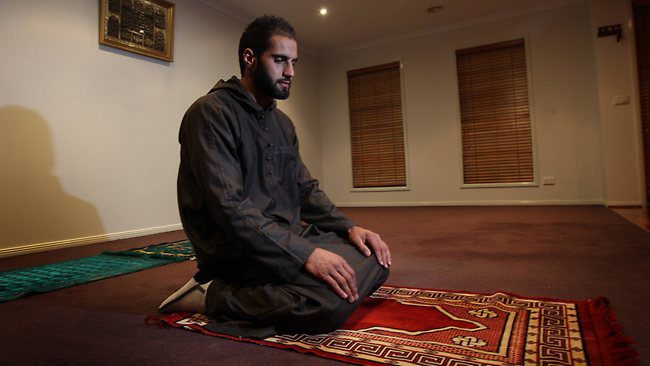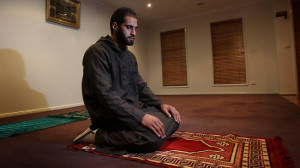Ramadan: “My Lord, forgive me”

Today is the last post in our special Franciscan Friday series on Ramadan by guest blogger Fr. Michael Calabria, OFM.
 |
| “Asking forgiveness for one’s sins is an essential aspect of Islamic prayer and Ramadan.” |
The last couple of weeks seem to have been particularly violent in the world and in the U.S.
In Egypt, tensions between Christians and Muslims have resulted in deadly disputes. There have been clashes between Hindus and Muslims in northern India, and between the Buddhist majority and Muslim minority in Myanmar. In Nigeria, the militant Islamist group called Boko Haram continues to target their Christian compatriots. In Wisconsin, a white supremacist murdered Sikh worshippers who are often believed to be Muslim. In Missouri, a mosque was burned to the ground.
As someone who has spent a lot of time in Muslim countries, studying Islam, working, socializing and praying with Muslims both abroad and in the U.S., I’m deeply saddened and troubled by all of this, as all people of faith must be.
It’s particularly distressing for me that they have occurred during the holy fast of Ramadan when Muslims are invited to turn to God in a more concerted way, to reorder their lives and priorities, and become more aware of those in need.
It’s a time to reconsider what it truly means to be “one who submits (to God).” It’s a time for honesty, humility and healing. It’s a time when the words uttered many times in the course of daily Islamic prayer – Rabb-i ighfir lee – “My Lord, forgive me” – become even more poignant and more heartfelt.
This is what I appreciate about Ramadan and why it can be a gift to anyone who aspires to lead a life of genuine and humble faith. While Christians, Muslims, Buddhists and Hindus argue over whose religion is the true one, I recall the words from the Qur’an:
Surely those who believe (in the Qur’an), and those who are Jews and the Christians… and anyone who believes in God and the Last Day, and works righteousness, shall have their reward with their Lord. They shall not fear nor shall they grieve (2.62).
In the spring of 2002, I was in Damascus, Syria. It was just a few months after the horrific events of September 11. I was particularly interested in visiting the city’s Umayyad Mosque for two reasons. Inside the mosque is a shrine believed to contain the head of John the Baptist, or Yahya as he is known to Muslims.
At a time when Americans were speaking about the “Islamic threat,” I prayed shoulder-to-shoulder with Muslims and Christians at the shrine of a prophet revered by both faith communities. I had a glimpse of the Kingdom of God. Outside the mosque I found the so-called “Jesus minaret,” believed by many Muslims to be the spot where Jesus will appear at the Second Coming. I prayed there at the base of the minaret, tearfully, pained by the recent events in the U.S.
In spite of events past and present, I do not believe that sectarian violence is inevitable. God’s goodness and grace is. I am again reminded of words from the Qur’an:
For everyone is a direction (of prayer) of which God is the focal point. So vie then with one another in doing good works. Wherever you are God will bring you together, for God has power over all things (2.148)
Fr. Michael Calabria, OFM is a Franciscan friar of Holy Name Province. For the past nine years he has taught Arabic and Islamic Studies at St. Bonaventure University, and is currently pursuing his doctorate in Arab and Islamic Studies with the University of Exeter, UK, and serving as a chaplain-in-residence at Georgetown University. Fr. Michael has lived, ministered and taught in Egypt, has traveled extensively in the Middle East, and speaks widely on Islam, Middle Eastern Affairs, and Christian-Muslim Relations.
Tagged in:

